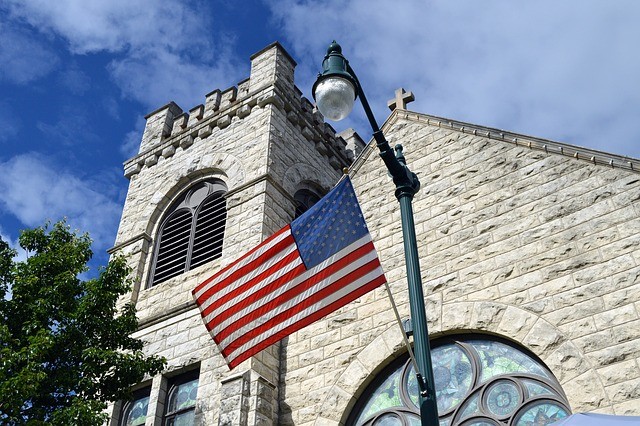What is the Johnson Amendment, and why is it controversial?
Note: This is from an article I wrote in 2018.
The Johnson Amendment has been in the news again this week and has been for the last few years. One of President Trump's campaign promises was to repeal it, specifically for churches. However, it is still in effect. What exactly is this law that so few have heard of, and why have people been deabing it for decades?
The Johnson Amendment is named after Lyndon Johnson, who introduced it to the Senate during his 1954 re-election campaign for senator. As with any amendment, there are a lot of facets to it, but generally speaking it prevents nonprofit organizations from endorsing political candidates in order to keep their tax-exempt status. This includes religious, literary, scientific, educational, and other charities -- any organization that has a 501(c)3 status. Some nonprofits file under 501(c)4, which can take donations but NOT make them tax-exempt. Those organizations have more freedom to engage in politics.
So, what is the big deal? Many of us who have worked for nonprofits see this as just part of the deal of allowing donors to earn deductions on their taxes for money they gave us.
Well, as with almost everything else in the world, there are pros and cons. The pros and cons in this case are a bit subjective: what some see as a good reason for repeal, others see as a good reason to keep the law as it is.
Pros of the Johnson Amendment
It is easier to attract large donations from donors who want the tax deduction, particularly at the end of the calendar year.
If the amendment were repealed, your tax-deductible donation could be used by a charity to promote a candidate you don't support.
Allowing charities to become fundraising machines for political candidates could lead them to drift away from their stated mission and become political organizations.
Donors may start supporting an organization for its politics, not its mission -- and add pressure to those nonprofits to continue to become politics-driven instead of mission-driven.
Non-partisan organizations address community problems, free from partisan politics.
Nonprofits are not subject to pressure from large donors to support or even campaign for a particular candidate they like.
Cons of the Johnson Amendment
Free speech should include everyone, including the leaders of nonprofit organizations and religious leaders.
Organizations could raise money for political candidates who support their missions.
The current guidelines are vague, no one knows where the line is.
Organizations should be allowed to inform their donors, clients, members about issues and candidates that affect them. This leads to a more informed citizenry.
Donors could move donations away from super PACs (political action committee) to political charities.
So, how effective is the Johnson Amendment? That is up for debate.
Many religious organizations violate it, but the IRS is reluctant to go after them.
As I already mentioned, the wording of the amendment is ambiguous, and many nonprofit leaders are not quite sure what is a violation and what is not.
It only applies to 501(c)3 organizations, not 501(c)4 charities. That is why some organizations are able to take part in politics and can be more free with political speech.
How do nonprofit organizations and Americans feel about the potential repeal of the Johnson Amendment?
According to a LifeWay Research study from 2016, fewer than half of the population of the United States wants to see churches punished for violating the amendment. In fact, the idea of religion in politics has grown in favor over the last several years.
LifeWay Research also found that 79 percent of Americans with evangelical beliefs think pastors should abstain from endorsing politicians.
The National Council of Nonprofits opposes repeal, while the Alliance Defending Freedom believes it is unconstitutional.
There is no consensus among nonprofit organizations about whether or not the amendment should be repealed.
Since President Trump's inauguration, we have seen attempts to repeal the amendment. He signed an executive order in May 2017 asking the IRS to be lenient in enforcing the amendment -- which they already are. It was part of the tax bill in December 2017, but removed near the end of the process. In March 2018, another attempted repeal did not pass.
The debate was renewed this week after President Trump told a room of evangelical pastors that he got "rid of" the law. Hopefully, the people in the room understand that his executive order from 2017 did nothing to change the law.
The attempts to repeal the Johnson Amendment will most likely continue. Whether you think it should stay or want it repealed, ensure that you keep up with any possible changes in the law so that you know your rights as a nonprofit staff member, especially if you are in the ministry.







Comments
Post a Comment